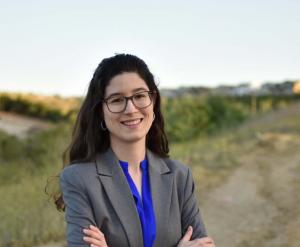Human Factors Modelling and Traffic Management Design
Transportation Center (PSR), UC ITS Statewide Transportation Research Program (STRP), UC ITS Resilient and
Innovative Mobility Initiative (RIMI), and NSF Smart and Connected Communities Project (NSF S&CC)

Department of Transport & Planning Civil Engineering and Geosciences Faculty
TU Delft
This presentation will present an overview on human factors modelling in traffic flow. Three different
studies will be discussed related to human factors and transportation management strategies. The first will explain
how the introduction of stochasticity into a car-following model can replicate stop-and-go wave phenomenon, and
how automated and connected vehicles can mitigate this phenomenon through the elimination of human error and
the use of connectivity. The second study will explore the impact of compliance rates on the design of variable
speed limit control to prevent capacity drops at sag and tunnel bottlenecks. Finally, an overview of the i4driving
European project will be presented. This ambitious project with multiple countries involved aims to deliver a new
library of credible models of heterogeneous human driver behaviors. This new library will be a combination of
models bringing the heterogeneity and complexity of the road traffic system into simulation by accounting for
human factors.
Irene Martínez is an Assistant Professor and Co-director of the hEAT lab at the Department of Transport & Planning
within the Civil Engineering and Geosciences faculty at TU Delft. She obtained her Ph.D. in Civil and Environmental
Engineering from the University of California, Irvine, with a dissertation entitled: "Modeling and Management of
Emerging Mobility Systems: New Approaches Based on Vehicle and Trip Flow Dynamics in Absolute and Relative
Spaces". She has a background in Civil Engineering with double MSc degrees from the University of California, Irvine
(2019) and Universitat Politècnica de Catalunya (2017). Irene is a member of the TRB Traffic Flow Theory and
Characteristics Committee. She has received several awards during her studies. Her research interest is traffic flow
theory and control in the era of autonomous, connected, and shared mobility. She has worked on the design of
multiple management strategies, such as Variable Speed Limits, High-Occupancy-Toll lanes, and fleet sizing of shared
mobility systems. Her research goals are to design the next generation of transportation management strategies to
guarantee sustainable and equitable transportation systems.